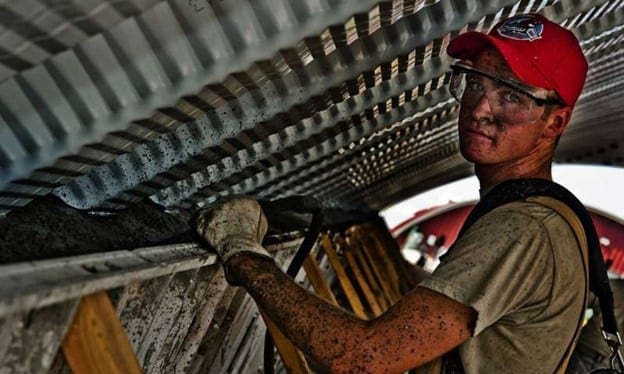The muscles and joints are not the only parts of the body to be worn down by physical work. The brain and heart suffer too. A new study from the University of Copenhagen shows that people doing hard physical work have a 55% higher risk of developing dementia than those doing sedentary work. The figures have been adjusted for lifestyle factors and lifetime, among other things.
The general view has been that physical activity normally reduces the risk of dementia just as another study from the University of Copenhagen recently showed that a healthy lifestyle can reduce the risk of developing dementia conditions by half.
Here the form of physical activity is vital, though, says associate professor Kirsten Nabe-Nielsen from the Department of Public Health at the University of Copenhagen.
“Before the study we assumed that hard physical work was associated with a higher risk of dementia. It is something other studies have tried to prove, but ours is the first to connect the two things convincingly,” says Kirsten Nabe-Nielsen, who has headed the study together with the National Research Centre for the Working Environment with help from Bispebjerg-Frederiksberg Hospital.
“For example, the WHO guide to preventing dementia and disease on the whole mentions physical activity as an important factor. But our study suggests that it must be a ‘good’ form of physical activity, which hard physical work is not. Guides from the health authorities should therefore differentiate between physical activity in your spare time and physical activity at work, as there is reason to believe that the two forms of physical activity have opposite effects,” Kirsten Nabe-Nielsen says and explains that even when you take smoking, blood pressure, overweight, alcohol intake and physical activity in one’s spare time into account, hard physical work is associated with an increased occurrence of dementia.
One of the study’s co-authors is Professor MSO Andreas Holtermann from the National Research Centre for the Working Environment. He hopes the dementia study from the University of Copenhagen will contribute to shine a spotlight on the importance of prevention, as changes in the brain begin long before the person leaves the labor market.
“A lot of workplaces have already taken steps to improve the health of their staff. The problem is that it is the most well-educated and resourceful part of the population that uses these initiatives. Those with a shorter education often struggle with overweight, pain and poor physical fitness, even though they take more steps during the day and to a larger extent use their body as a tool. For workmen, it is not enough for example to avoid heavy lifts if they wish to remain in the profession until age 70. People with a shorter education doing manual labor also need to take preventive steps by strengthening the body’s capacity via for example exercise and strength training,” he says.
The study is based on data from the Copenhagen Male Study (CMS), which included 4,721 Danish men, who back in the 1970s reported data on the type of work they did on a daily basis. The study included 14 large Copenhagen-based companies, the largest being DSB, the Danish Defence, KTAS, the Postal Services and the City of Copenhagen.
Through the years, the researchers have compiled health data on these men, including data on the development of dementia conditions.
According to Kirsten Nabe-Nielsen, previous studies have suggested that hard physical work may have a negative effect on the heart blood circulation and thus also on the blood supply to the brain. This may for example lead to the development of cardiovascular diseases like high blood pressure, blood clots in the heart, heart cramps and heart failure.
The National Research Centre for the Working Environment continues to work on the results with a view to identifying healthier ways of doing hard physical work. They have therefore begun to collect data from social and healthcare assistants, child care workers and packing operatives, among others, in order to produce interventions meant to organize hard physical work in such a way that it has an ‘exercise effect.’
They thus hope to see companies successfully change work procedures, ensuring for example that heavy lifts will have a positive effect rather than wear down the workers. The results will be published on an ongoing basis.
Source: https://medicalxpress.com/news/2020-10-hard-physical-significantly-dementia.html





